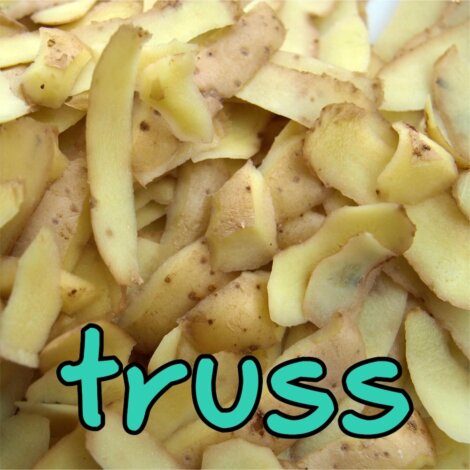Community / History in a wird: the origins of ‘truss’
IN THE latest instalment of the I Hear Dee project’s History in a Wird series, we feature the origins of the Shetland word truss, meaning “(useless) odds and ends; scraps; scrapings; rubbish”.
Run by linguists Dr Viveka Velupillai and native Shaetlan speakers Roy Mullay, Julie Dennison and Andrew Blance, the I Hear Dee project aims to document and describe the contemporary use of the distinctive language variety.
In researching the history of the local tongue, the I Hear Dee team is regularly unearthing fascinating twists and turns, which Shetland News is happy to share to give it a wider audience.
It offers insights into the origin of the local language and how far travelled some of the words and phrases in regular use are.
The origin of the word truss is explained here (in Shaetlan):
Da snüds an wups idda vaige o a wird is fascinatin. Da Shaetlan wird truss means ‘(øseless) proil; brucks; scraepeens; bruck. Hit’s Shetland specific an it comes stracht fae da Aald Norse tros ‘brushwid; half rotten twigs; dry twigs an wid spellicks; etc’. Da wird is still fun in Swedish as tross ‘bruck, proil, etc’ an NyNo. as tros ‘half rotten twigs; dry twigs an wid spellicks; etc’, laek in da sayeen
Der er tros i alle skogar (‘De’r tøtaks aawye’)
Da origin o da wird isna kent o but hit micht come fae Proto-Germanic *trusan, at itsel comes fae *trewan, at in turn comes fae Proto-Indo-European *deru-/*drū- ‘tree, wid’. So da semantic gaet truss is taen is geen fae herd wid tae øseless bruck.
Here is the translation:
The twists and turns in the journey of a word are fascinating. The Shaetlan word truss means ‘(useless) odds and ends; scraps; scrapings; rubbish’. It is Shetland specific and a direct descendant of Old Norse tros ‘brushwood; half rotten twigs; dry twigs and wood splinter; etc’. The word is still found in Swedish as tross ‘rubbish, refuse, etc’ and NyNo. as tros ‘half rotten twigs; dry twigs and wood splinter; etc’, like in the saying
Become a member of Shetland News
Der er tros i alle skogar (‘There are inferior people everywhere’)
The origin of the word is obscure but might come from Proto-Germanic *trusan, which itself derives from *trewan, which in turn derives from Proto-Indo-European *deru-/*drū- ‘tree, wood’. So the semantic journey of truss has gone from hard wood to useless rubbish.
The history of the words smoorikin and dratsi are here and here.



























































